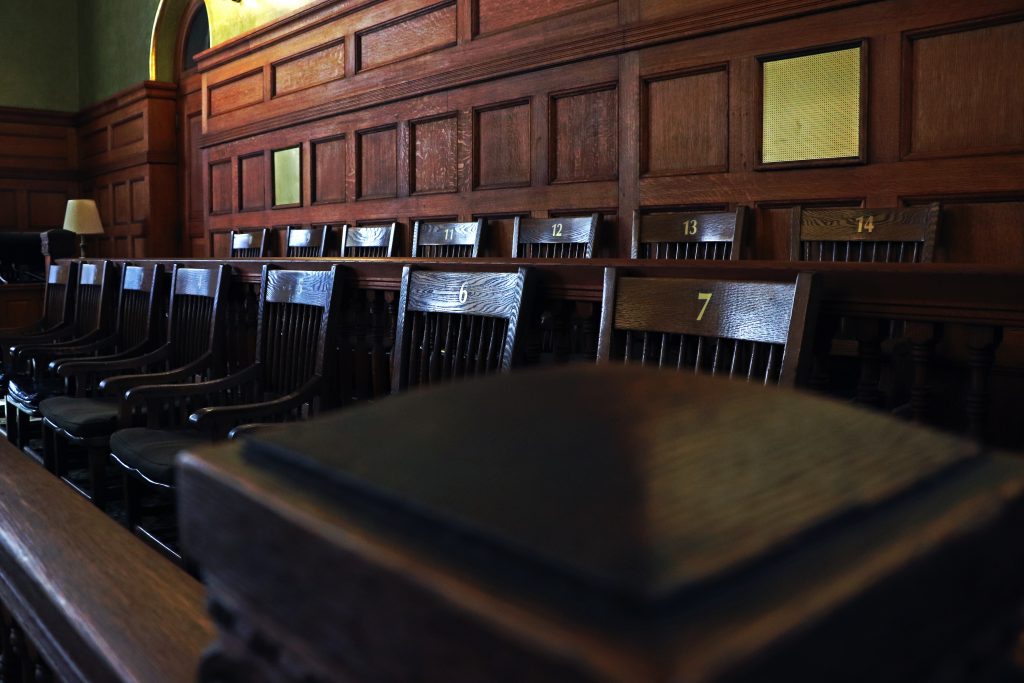I just had that proverbial phrase, “Who am I to judge?” answered for me. And the answer was: me.
I have never served on a jury in a courtroom before this month. I had been called to make myself available for jury duty on multiple occasions, but I was either never summoned to a courtroom, had a case settled before jury selection even began, and was once politely dismissed because I did not fit the particular demographics for a civil lawsuit case.
This time I was called to report to a courtroom along with 75 other prospective jurors. I thought the odds were in my favor that among 75 people, there had to be at least 30 of them more qualified to be jurors than me. I was wrong.
Let me introduce myself: Juror No. 11.
So, there I sat. Not only was this the very first jury I had ever been a member of, the case was about as big as it gets: a double homicide where the defendant admitted to committing the killings but pleaded not guilty to first-degree murder. The defense would lay out a case for manslaughter; the prosecution would insist it was first-degree murder. I was awash in a sea of sorrow.
Two people were dead and the details regarding just about everything related to this case were either horrible, or really horrible. To make matters worse, for the nine days of the process, I was prohibited from talking about everything I was hearing, seeing, and feeling.
I was not prepared for the effects of bottling up all the things I was thinking and feeling and keeping them there, by the judge’s order, until after the case was concluded. I could not even speak about the case among my fellow jurors until the case was “handed” to us.
It was too late to pray and ask for this cup to pass me by. I wanted to be fair and impartial, I kept telling myself (the only person I could talk to about this for nine days) that I heartily believed in the American jurisprudence system, and that a defendant was just that, a defendant.
He had not been convicted of anything and I had to maintain a premise that he was sitting next to his lawyer as a man not guilty. It was all up to the prosecution to prove, beyond a reasonable doubt, of course, that this man had intentionally, and with malice aforethought, took the lives of two people.
We were told before the trial even started that this was not a “death penalty” case; thank God for little favors. But there were special circumstances involved that would impact the sentencing even though we were instructed not to take the sentencing issue into consideration, as it wasn’t our job as jurors to do so. We were there to listen, take notes if we wanted to, and decide not if the defendant’s defense was plausible, but if the people of California had proven guilt.
Since I actually only had myself as company for these long days, my thoughts bounced around in my head like a pinball machine with The Who’s Keith Moon at the flippers.
I felt fortunate for my life, for my imperfect parents who loved me. I thought a lot about my former career as a television writer and all the cop shows and a few lawyer shows I had written.
I knew it wasn’t great art I was producing, but sitting in a real courtroom and being privy to a real double homicide really shined the light on the ridiculousness of my making entertainment out of make-believe murder.
I struggled with bouts of guilt over feeling superior to the defendant. Granted, there was not a lot to like about him, another element that made the necessity to view him as innocent until proven guilty all the harder. Yet, I felt completely inadequate standing in judgment over another human being. So, I prayed a lot. I had phrases like “rendering unto Caesar” running in a constant loop in my head.
Finally, it was over. Together, 12 total strangers agreed in unison with the prosecutor’s claim and the instruction of the law that what had happened was two counts of first-degree murder.
There was neither relief nor regret in the jury room. We never learned one another’s names. I remained Juror No. 11. But the victims had names, and the young man I helped send to prison for the rest of his natural days had a name, too.
The only way I have been able to process this as well, or as poorly, as I have is to every now and then remember all three names and lay them down at the foot of the cross.

